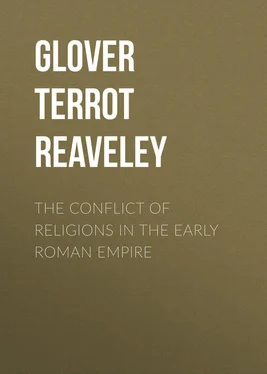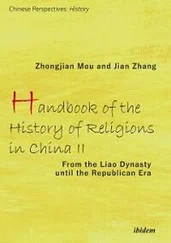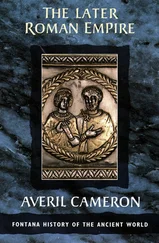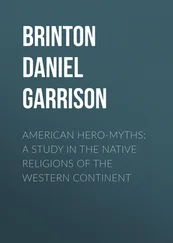Terrot Glover - The Conflict of Religions in the Early Roman Empire
Здесь есть возможность читать онлайн «Terrot Glover - The Conflict of Religions in the Early Roman Empire» — ознакомительный отрывок электронной книги совершенно бесплатно, а после прочтения отрывка купить полную версию. В некоторых случаях можно слушать аудио, скачать через торрент в формате fb2 и присутствует краткое содержание. Жанр: foreign_religion, foreign_antique, foreign_prose, на английском языке. Описание произведения, (предисловие) а так же отзывы посетителей доступны на портале библиотеки ЛибКат.
- Название:The Conflict of Religions in the Early Roman Empire
- Автор:
- Жанр:
- Год:неизвестен
- ISBN:нет данных
- Рейтинг книги:4 / 5. Голосов: 1
-
Избранное:Добавить в избранное
- Отзывы:
-
Ваша оценка:
- 80
- 1
- 2
- 3
- 4
- 5
The Conflict of Religions in the Early Roman Empire: краткое содержание, описание и аннотация
Предлагаем к чтению аннотацию, описание, краткое содержание или предисловие (зависит от того, что написал сам автор книги «The Conflict of Religions in the Early Roman Empire»). Если вы не нашли необходимую информацию о книге — напишите в комментариях, мы постараемся отыскать её.
The Conflict of Religions in the Early Roman Empire — читать онлайн ознакомительный отрывок
Ниже представлен текст книги, разбитый по страницам. Система сохранения места последней прочитанной страницы, позволяет с удобством читать онлайн бесплатно книгу «The Conflict of Religions in the Early Roman Empire», без необходимости каждый раз заново искать на чём Вы остановились. Поставьте закладку, и сможете в любой момент перейти на страницу, на которой закончили чтение.
Интервал:
Закладка:
Ovid describes old charms to keep off vampires, striges , from the cradles of children.[ 44 44 Ovid, Fasti , vi, 155 f.
]
In fact the whole of Nature teemed with beings whom we find it hard to name. They were not pleasant enough, and did not appeal enough to the fancy, to merit the name "fairies" – at least since The Midsummer Night's Dream was written. Perhaps they are nearer "The little People" – the nameless "thim ones."[ 45 45 Cf. (Lucian) Asinus , 24. poî badixeis aôría talaipôre; oudè tà daimónia dédoikas .
] They were neither gods nor demons in our sense of the words, though Greek thinkers used the old Homeric word daimôn to describe them or the diminutive of it, which allowed them to suppose that Socrates' daimónion was something of the kind.
The genius
But these Nature-spirits, whatever we may call them, were far from being the only superhuman beings that encompassed man. Every house had its Lares in a little shrine ( lararium ) on the hearth, little twin guardian gods with a dog at their feet, who watched over the family, and to whom something was given at every meal, and garlands on great days. Legend said that Servius Tullius was the son of the family Lar .[ 46 46 Pliny, N.H. xxxvi, 204.
] The Lares may have been spirits of ancestors. The Emperor Alexander Severus set images of Apollonius, Christ, Abraham and Orpheus, "and others of that sort" in his lararium .[ 47 47 Lampridius, Alex. Sev. 29. 2.
] Not only houses but streets and cross-roads had Lares ; the city had a thousand, Ovid said, besides the genius of the Prince who gave them;[ 48 48 Fasti , v. 145. Cf. Prudentius, adv. Symm , ii, 445 f.
] for Augustus restored two yearly festivals in their honour in Spring and Autumn. There were also the Penates in every home, whom it would perhaps be hard to distinguish very clearly from the Lares . Horace has a graceful ode to "Phidyle" on the sufficiency of the simplest sacrifices to these little gods of home and hearth.[ 49 49 Odes , iii, 23. Farre pio .
] The worship of these family gods was almost the only part of Roman religion that was not flooded and obscured by the inrush of Oriental cults.
"The Ancients," said Servius, "used the name Genius for the natural god of each individual place or thing or man,"[ 50 50 On Georgic i, 302, See Varro, ap. Aug. C.D. vii, 13. Also Tert. de Anima , 39, Sic et omnibus genii deputantur, quod dæmonum nomen est. Adeo nulla ferme nativitas munda, utique ethnicorum .
] and another antiquary thought that the genius and the Lar might be the same thing. For some reason men of letters laid hold upon the genius , and we find it everywhere. Why there should be such difference even between twin brothers,
He only knows whose influence at our birth
O'errules each mortal's planet upon earth,
The attendant genius, temper-moulding pow'r,
That stamps the colour of man's natal hour.[ 51 51 Hor. Ep. ii. 2, 187 f. Howes' translation. Cf. Faerie Queene , II, xii, 47.
]
The idea of this spiritual counterpart pervades the ancient world. It appears in Persia as the fravashi .[ 52 52 See J. H. Moulton in Journal of Theological Studies , III, 514.
] It is in the Syrian Gnostic's Hymn of the Soul, as a robe in the form and likeness of a man. —
It was myself that I saw before me as in a mirror;
Two in number we stood, but only one in appearance.[ 53 53 Burkitt, Early Eastern Christianity , p. 222.
]
It is also probable that the "Angel" of Peter and the "Angels of the little children" in the New Testament represent the same idea. The reader of Horace hardly needs to be reminded of the birthday feast in honour of the genius , — indulge genio . December, as the month of Larentalia and Saturnalia, is the month welcome to every genius , Ovid says.[ 54 54 Fasti , iii, 57; Seneca, Ep. 18. 1, December est mensis: cum maxime civitas sudat, ius luxuries publicæ datum est … ut non videatur mihi errasse qui dixit: olim mensem Decembrem fuisse nunc annum .
]
The worship of all or most of these spirits of the country and of the home was joyful, an affair of meat and drink. The primitive sacrifice brought man and god near one another in the blood and flesh of the victim, which was of one race with them both.[ 55 55 Cf. Robertson Smith, Religion of the Semites , lect. xi.
] It was on some such ground that the Jews would not "eat with blood," lest the soul of the beast should pass into the man. There were feasts in honour of the dead, too, which the church found so dear to the people that it only got rid of them by turning them into festivals of the Martyrs. It was not idly that St Paul spoke of "meat offered to idols" and said that the Kingdom of God was not eating or drinking.
In addition to all these spirits of living beings, of actions and of places, we have to reckon the dead. There were Manes – a name supposed to mean "the kindly ones," a caressing name given with a purpose and betraying a real fear. There were also ghosts, larvæ and lemures .[ 56 56 Warde Fowler, Roman Festivals , pp. 106 f.
] It was the thought of these that made burial so serious a thing, and all the ritual for averting the displeasure of the dead. The Parentalia were celebrated on the 13th of February in their honour,[ 57 57 Ovid, Fasti , ii, 409 f. Warde Fowler, op. cit. pp. 306 f.
] and in May the Lemuria . It is, we are told, for this reason that none will marry in May.[ 58 58 Ovid, Fasti , v, 490.
] Closely connected with this fear of ghosts and of the dead is that terror of death which Lucretius spends so much labour in trying to dissipate.
"I see no race of men," wrote Cicero, "however polished and educated, however brutal and barbarous, which does not believe that warnings of future events are given and may be understood and announced by certain persons,"[ 59 59 De Divinatione , i, 1, 2.
] and he goes on to remark that Xenophanes and Epicurus were alone among philosophers in believing in no kind of Divination.[ 60 60 ib. i, 3, 5.
] "Are we to wait till beasts speak? Are we not content with the unanimous authority of mankind?"[ 61 61 ib. i, 39, 84.
] The Stoics, he says, summed up the matter as follows: —
"If there are gods and they do not declare the future to men; then either they do not love men; or they are ignorant of what is to happen; or they think it of no importance to men to know it; or they do not think it consistent with their majesty to tell men; or the gods themselves are unable to indicate it. But neither do they not love men, for they are benefactors and friends to mankind; nor are they ignorant of what they themselves appoint and ordain; nor is it of no importance to us to know the future – for we shall be more careful if we do; nor do they count it alien to their majesty, for there is nothing nobler than kindness; nor are they unable to foreknow. Therefore no gods, no foretelling; but there are gods; therefore they foretell. Nor, if they foretell, do they fail to give us ways to learn what they foretell; nor, if they give us such ways, is there no divination; therefore, there is divination."[ 62 62 De Divinatione , i, 38, 82, 83. Cf. Tertullian, de Anima , 46. Sed et Stoici deum malunt providentissimum humanæ institutioni inter cetera præsidia divinatricum artium et disciplinarum somnia quoque nobis indidisse, peculiare solatium naturalis oraculi .
]
Интервал:
Закладка:
Похожие книги на «The Conflict of Religions in the Early Roman Empire»
Представляем Вашему вниманию похожие книги на «The Conflict of Religions in the Early Roman Empire» списком для выбора. Мы отобрали схожую по названию и смыслу литературу в надежде предоставить читателям больше вариантов отыскать новые, интересные, ещё непрочитанные произведения.
Обсуждение, отзывы о книге «The Conflict of Religions in the Early Roman Empire» и просто собственные мнения читателей. Оставьте ваши комментарии, напишите, что Вы думаете о произведении, его смысле или главных героях. Укажите что конкретно понравилось, а что нет, и почему Вы так считаете.












